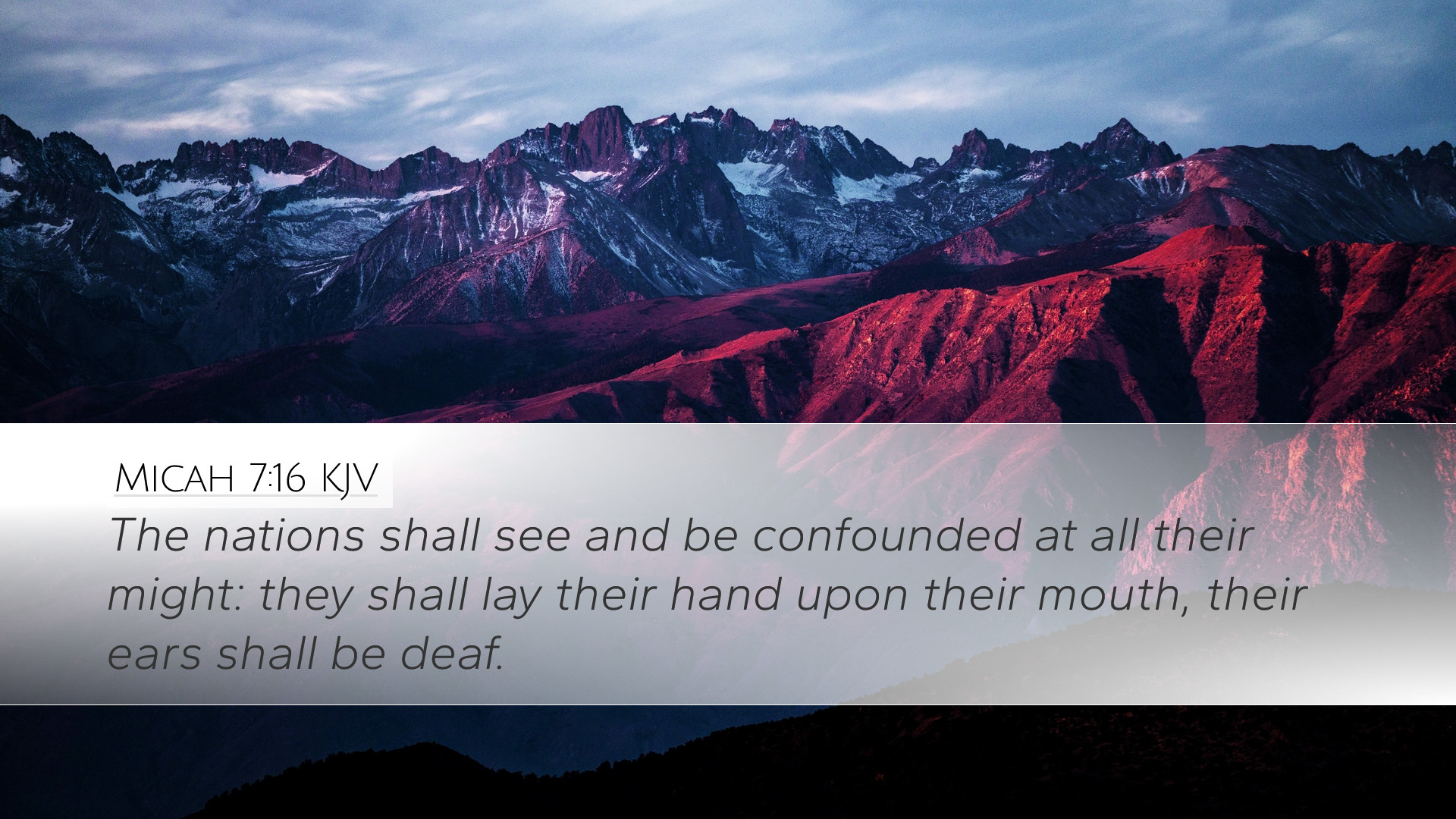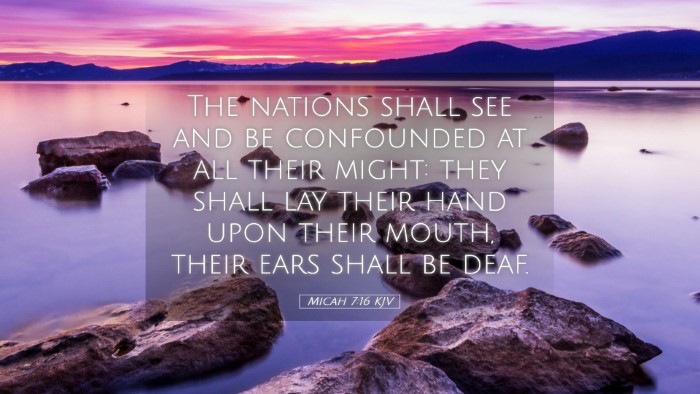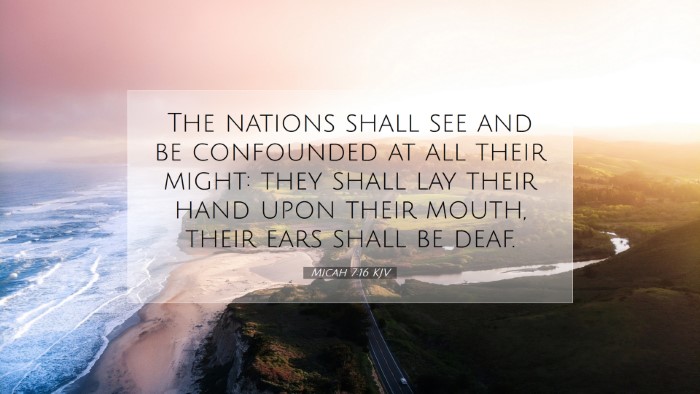Old Testament
Genesis Exodus Leviticus Numbers Deuteronomy Joshua Judges Ruth 1 Samuel 2 Samuel 1 Kings 2 Kings 1 Chronicles 2 Chronicles Ezra Nehemiah Esther Job Psalms Proverbs Ecclesiastes Song of Solomon Isaiah Jeremiah Lamentations Ezekiel Daniel Hosea Joel Amos Obadiah Jonah Micah Nahum Habakkuk Zephaniah Haggai Zechariah MalachiMicah 7:16
Micah 7:16 KJV
The nations shall see and be confounded at all their might: they shall lay their hand upon their mouth, their ears shall be deaf.
Micah 7:16 Bible Commentary
Bible Commentary on Micah 7:16
Verse: "The nations will see and be ashamed, depraved as they are, and they will lay their hands on their mouths and their ears will be deaf." (Micah 7:16)
Introduction
The Book of Micah, a minor prophet in the Old Testament, presents a profound and multifaceted view of God's relationship with His people and the surrounding nations. Micah 7:16 encapsulates a moment of divine revelation where the nations witness the consequences of their iniquities and the profundity of God's power. This commentary synthesizes insights from public domain sources, including Matthew Henry, Albert Barnes, and Adam Clarke, to provide a comprehensive understanding of this verse.
Analysis of the Text
This verse asserts that the nations will experience a profound shame in response to their actions. The terms "will see and be ashamed" imply a moment of confrontation with truth, where the nations recognize their failures and the holiness of God.
- Shame and Recognition: The shame that the nations feel is not merely a feeling of embarrassment but a deep recognition of their depravity. Matthew Henry notes that this shame is divinely induced, a moment where the truth of their sinfulness comes to light.
- The Response of Humility: The imagery of laying hands on their mouths indicates a profound silence, a recognition of their guilt. Adam Clarke elaborates on this notion, suggesting that silence is the natural response when confronted with overwhelming evidence of wrongdoing.
- Deafness to Their Own Voices: The phrase "and their ears will be deaf" illustrates a spiritual incapacity. Albert Barnes points out that the nations, having rejected God’s call, will find themselves unable to hear His voice or heed any warning. Their sin leads to a hardening of their hearts.
Theological Implications
Micah 7:16 holds significant theological implications for our understanding of God’s justice and the human response to divine revelation.
- God’s Sovereignty: This verse illustrates the sovereignty of God over all nations. The shame experienced by the nations reveals that no one can escape the consequences of rebellion against God’s commandments.
- The Nature of Repentance: As the nations encounter their failures, this presents an opportunity for repentance. However, the deafness suggests a tragic outcome where those who are capable of turning back from their sinful ways ultimately refuse to do so.
- Universal Accountability: The wider context of Micah encourages the understanding that all nations are accountable before God. The recognition of shame serves as a reminder that God's justice is impartial and extends beyond Israel.
Practical Applications
For pastors, students, theologians, and scholars, Micah 7:16 offers rich applications for both personal and communal faith life.
- Self-Examination: Believers are encouraged to regularly examine their own lives for areas of sin. Just as the nations are brought to shame, the faithful should consider how their choices reflect their relationship with God.
- Communal Accountability: Churches and communities can draw lessons from this passage about holding one another accountable to God’s standards and recognizing the moments when we collectively stray.
- Proclamation of Truth: In preaching and teaching, the focus should align toward revealing truth, even when it might lead to uncomfortable realizations. The prophetic voice today remains crucial in helping hearers recognize their sinfulness.
Conclusion
Micah 7:16 serves as a sobering reminder of the reality of sin and the inevitability of God's judgment upon the nations. Yet, embedded within this message is the hope of grace and the call for repentance that resonates profoundly for believers today. By reflecting on the insights gleaned from the comments of past theologians like Matthew Henry, Albert Barnes, and Adam Clarke, we are equipped to engage with the biblical text in meaningful ways that foster deeper understanding and renewal in our spiritual walks.


